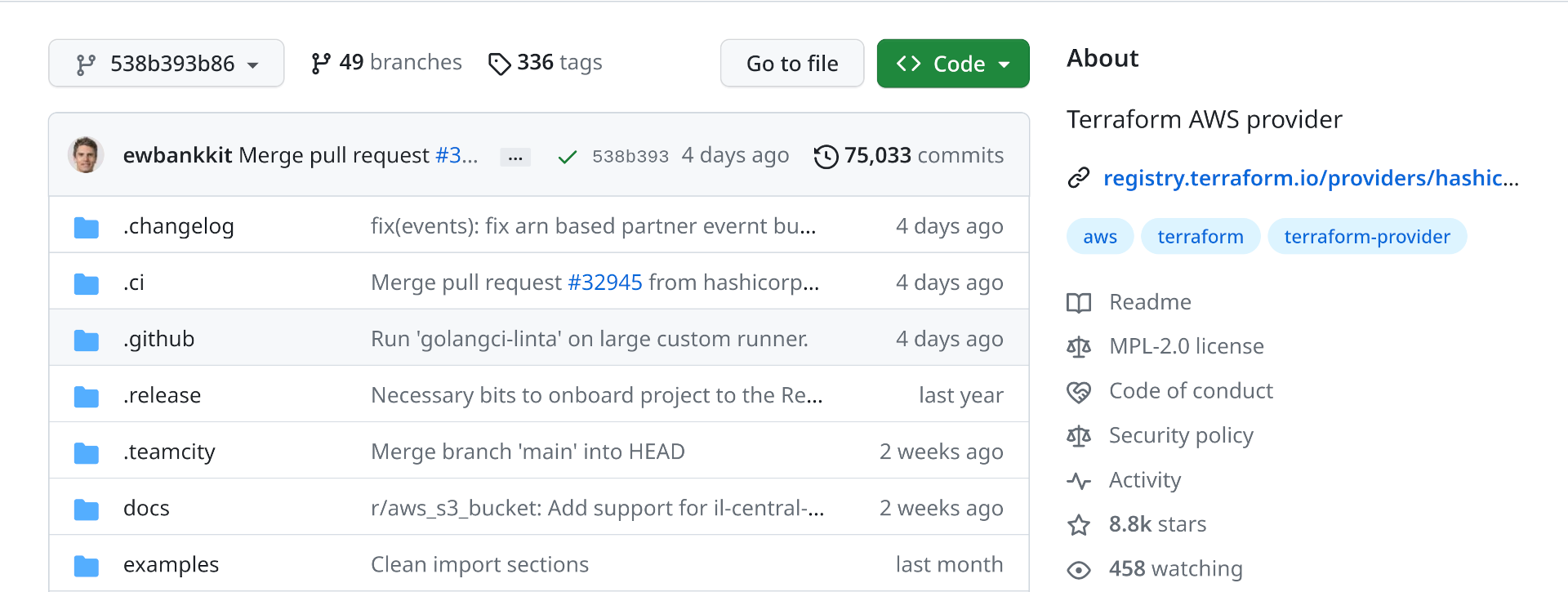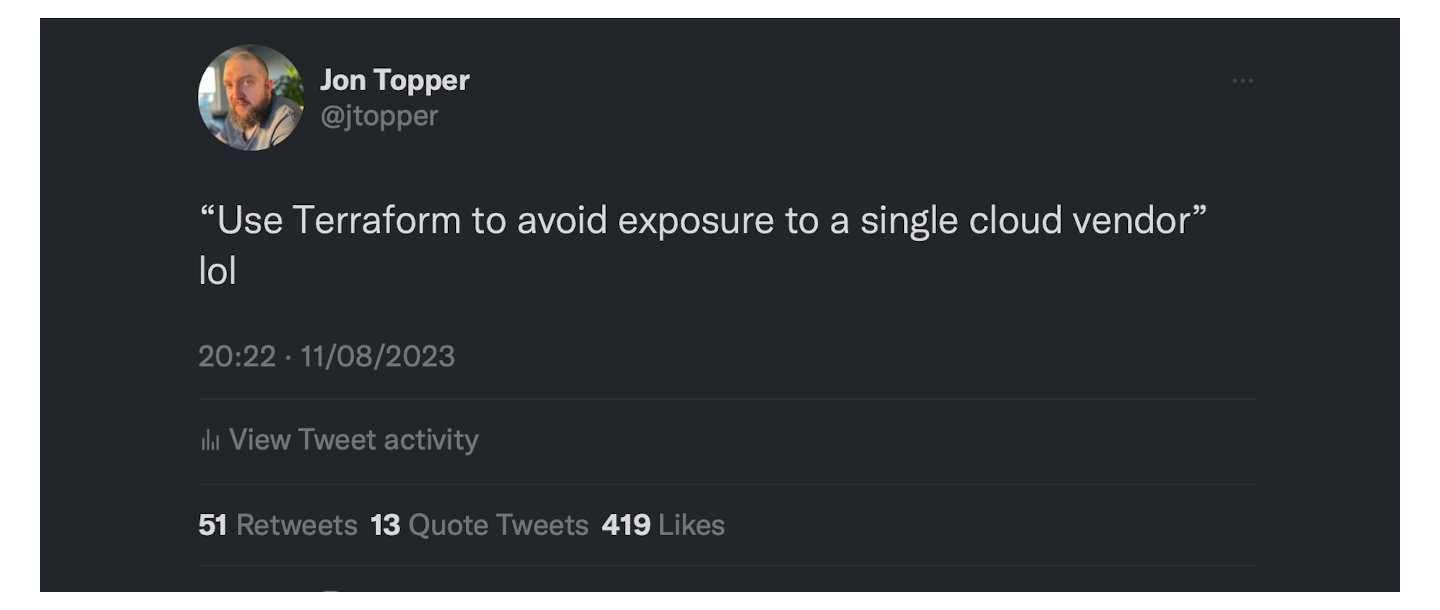Please note that this post, first published over a year ago, may now be out of date.
Hashicorp recently announced that they’ll soon be changing their products (including the popular Terraform) to use the Business Source License (BUSL). This puts limits on how this software can be used by anyone who’s in direct competition with them.

Here’s what you, as a SaaS CTO, need to be thinking about if Terraform is part of your software stack:
Regular Terraform users
If, like many of our customers, you currently use the free or commercial version of Terraform to provision cloud resources for your platform, and your product doesn’t compete with any of Hashicorp’s commercial offerings, it’s unlikely that this will impact you. You should still be able to use future versions of Terraform without hitting any licence constraints.
This is true whether you wrote the Terraform code yourself, had a consultancy like The Scale Factory write it for you, or you’re using freely available modules.
Going through Due Diligence soon?
If you fit this category, but you’re expecting some kind of due diligence activity in the near future, you should seek advice on this issue from your lawyers now, and consider contacting Hashicorp’s licensing team for clarification about your specific use case. The wording of this licence could raise eyebrows in a diligence process today, particular because the license is relatively new.
If your lawyers do have concerns, alternative IaC (infrastructure as code) solutions are available, but changing tools at this stage probably isn’t something you’ll want to invest in unless it’s at high risk of holding up or killing your deal.
If you don’t have a diligence process on the horizon, personally I’d wait this out for a quarter or so and see how the dust settles.
Using commercial alternatives to Terraform Cloud?
If you’re using Spacelift, Scalr, Env0, or some other commercial alternative to Terraform Cloud, this is probably cause for concern. I think this is exactly the type of business Hashicorp is targeting with their change in licence. It’s frustrating, because the cost model of Terraform Cloud is a poor fit for many of the teams we work with, and these products offer a good alternative.
Scalr, Spacelift, and Env0 have issued statements on the topic, indicating that there’s no immediate impact to their customers, and that they’re exploring options on how to move on from here. As I see it, these options are to agree some commercial terms with Hashicorp; fork Terraform at its current point and maintain a competing product either alone or together with similarly affected companies; or give up on Terraform and focus on other IaC offerings.
From a risk management perspective, I think it would be appropriate to consider what it would look like for you if this vendor stopped being an option in the medium term. With each vendor having only relatively modest financial backing (particularly when compared with Hashicorp), this seems to me to be a legitimate risk to consider.
Building a competing product?
If you’re building a product which directly competes with a Hashicorp commercial offering, using software components from Hashicorp, then this is likely an existential threat and you should already be seeking actual legal advice instead of listening to me.

Further information
Hashicorp’s team has been fielding questions about this licensing change in this discussion thread, and their original blog post about the licence change contains contact details for their licensing team if you want to ask more.
If you’re uncertain about how this change could impact you, please get in touch.
We’ve been an AWS SaaS Services Competency Partner since 2020. If you’re building SaaS on AWS, why not book a free health check to find out what the 2023 SaaS SI Partner of the Year can do for you?
This blog is written exclusively by The Scale Factory team. We do not accept external contributions.

